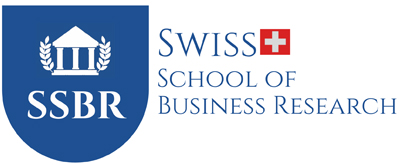This traditional method, while thorough, was fraught with inefficiencies and obstacles. The most poignant of these was perhaps the sheer volume of time consumed in the pursuit of academic rigour, a precious resource that could scarcely be afforded by many. Moreover, the manual nature of the process introduced a higher risk of oversight and error, potentially compromising the precision and accuracy so vital to scholarly work.
Fast forward to the present, and the landscape of academic research has been transformed irrevocably by the advent of artificial intelligence (AI). What once took months, or even years, can now be accomplished in a matter of weeks, thanks to the automation capabilities of AI technologies. The literature review process, in particular, has been revolutionised. AI-powered tools such as ChatGPT have not only streamlined the discovery and analysis of relevant literature but have also enhanced the accuracy and precision of these reviews. No longer must researchers endure the tedium of sifting through irrelevant papers or the monotony of writing reviews of others’ work. Instead, AI enables a focus on the essence of research—generating insights and contributing to the body of knowledge with efficiency and ease.
This seismic shift has not only expedited the research process but has also opened new avenues for exploration, allowing scholars to delve deeper into their subjects with the support of AI’s vast computational power and intelligent analysis. The result? A literature review that is not only quicker to compile but richer in insight and more robust in its scholarly contribution. As we stand on the threshold of this new era in academic research, it’s clear that AI has not just changed the game—it’s redefined it.
This guide is crafted to delineate how one can ethically utilise ChatGPT to automate aspects of literature review, ensuring that the process remains within the ethical boundaries set by academia.
Embarking on Your Literature Review with a Clear Question
The foundation of a solid literature review is a well-crafted research question. This query should strike a balance, being narrow enough to be manageable, yet broad enough to encompass the complexity of your topic. ChatGPT can play a pivotal role here, aiding in refining your ideas into a polished research question by offering suggestions based on the existing body of knowledge and identified research gaps.
Creating a Structured Outline with ChatGPT’s Help
With your research question in hand, the next step is to draft a detailed outline for your literature review, and here’s where ChatGPT comes into play:
- Identifying Key Themes: ChatGPT can assist in brainstorming relevant themes and subtopics, ensuring your review covers all necessary ground.
- Organising the Structure: The AI can recommend a logical flow for these themes, enhancing the coherence of your review.
- Refining Sections: ChatGPT can further refine your outline, suggesting where to expand or narrow down sections to align with your research question.
Efficient Research with Google Scholar
With an outline ready, Google Scholar becomes your go-to for sourcing high-quality academic papers, articles, and books. Keywords extracted from your outline, facilitated by ChatGPT, direct your searches, while abstracts give quick insights into each document’s relevance.
Streamlining References with Zotero
Zotero, a free reference management tool, is invaluable for keeping track of your sources. It simplifies citation and reference organisation, crucial for maintaining academic integrity. Zotero integrates seamlessly into your research workflow, from browser extensions for easy source collection to facilitating in-text citations and bibliographies in your document.
Building a Compelling Argument with the PIER System
To structure your literature review effectively, consider the PIER system:
- Point: Start sections with a statement that addresses your research question.
- Integration of Evidence: Use evidence from your sources to back up each point.
- Examples for Support: Illustrate your arguments with specific findings from your research.
- Recap: Conclude sections with summaries that tie back to your main question.
Refining Your Draft with ChatGPT
ChatGPT becomes a valuable asset again in the drafting phase, offering initial feedback on argument strength, coherence, and areas needing more evidence. Critically evaluate ChatGPT’s suggestions to ensure they align with your research objectives.
Ethical AI Use: A Success Story
One student’s experience highlights the transformative potential of ethically using ChatGPT for literature reviews. By leveraging AI, the student not only expedited their review process but also enriched the analytical depth of their work, resulting in significant academic improvement.
In Conclusion
The ethical employment of AI in academic research, especially in the drafting of literature reviews, marries the efficiency of technology with the researcher’s critical thinking skills. Following this guide ensures you can benefit from AI like ChatGPT, from formulating research questions to refining your final draft, all while adhering to the highest ethical standards.
The Swiss School of Business Research (SSBR) stands at the vanguard of integrating such technologies into its curriculum, preparing students for a digital future grounded in ethical practice. This commitment by SSBR not only equips students with cutting-edge technological competencies but also instils in them the ethical acumen necessary for their academic and professional endeavours, thereby affirming its role as a leader in forward-thinking education.


Your blog is a testament to your dedication to your craft. Your commitment to excellence is evident in every aspect of your writing. Thank you for being such a positive influence in the online community.